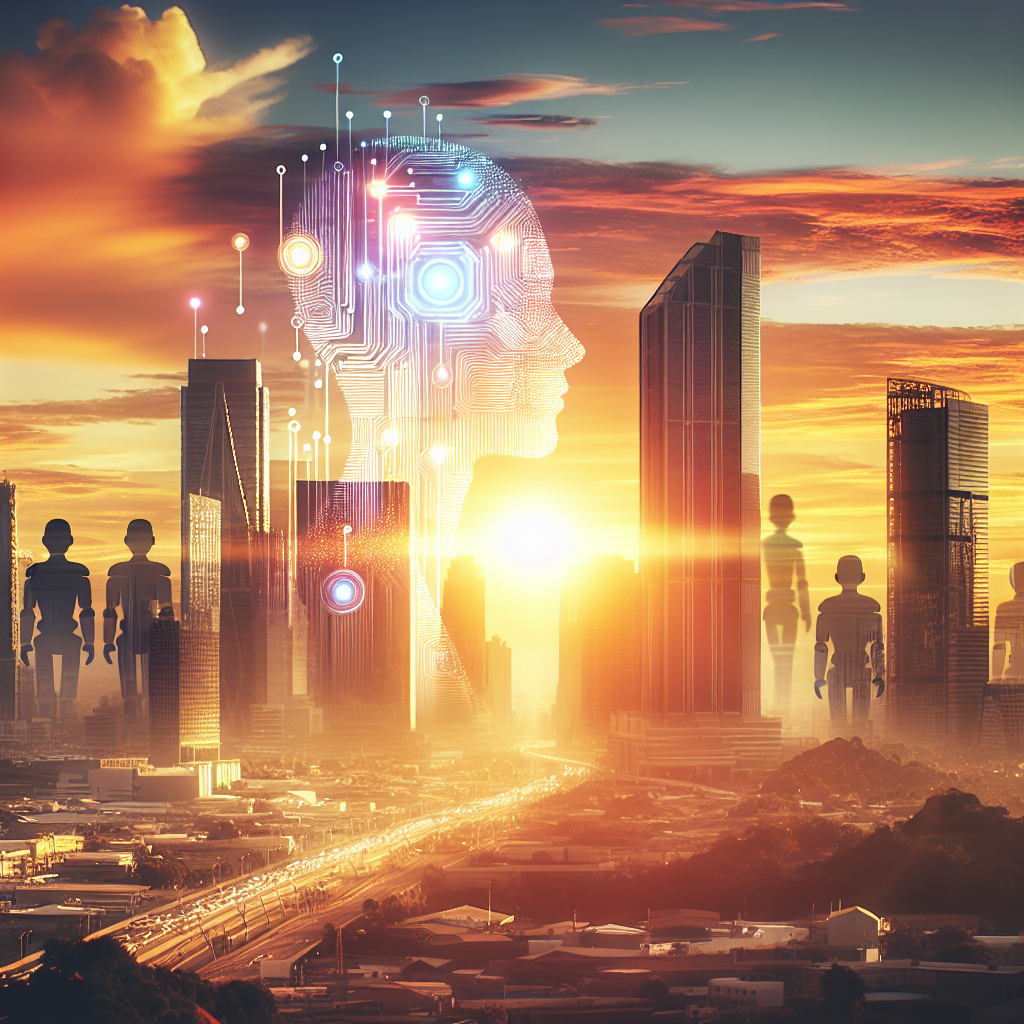The Rise of Artificial General Intelligence: What This Means for Humanity
Artificial General Intelligence (AGI) is a term used to describe a form of artificial intelligence that possesses the ability to understand, learn, and apply knowledge in a way that is comparable to human cognitive abilities. While today’s AI systems are typically specialized in specific tasks, such as image recognition or natural language processing, AGI represents a significant leap forward in the development of intelligent machines.
The concept of AGI has been the subject of much speculation and debate in recent years, with many experts predicting that the development of AGI could have profound implications for society. In this article, we will explore the rise of AGI and what this could mean for humanity.
What is Artificial General Intelligence?
Artificial General Intelligence is a form of artificial intelligence that is capable of understanding and learning from its environment in a way that is similar to human intelligence. AGI systems are able to adapt to new situations, learn from experience, and apply knowledge to solve a wide range of problems.
Unlike current AI systems, which are typically designed to perform specific tasks, AGI is designed to be more flexible and adaptable. This means that AGI systems can potentially be used in a wide range of applications, from healthcare and education to finance and entertainment.
The development of AGI has been the subject of much research and debate in recent years, with many experts predicting that the development of AGI could have a profound impact on society. Some experts believe that the development of AGI could lead to a new era of technological innovation, while others are concerned about the potential risks associated with creating machines that are more intelligent than humans.
The Rise of AGI
While AGI is still a relatively new field of research, there have been significant advances in recent years that have brought us closer to realizing the vision of creating intelligent machines. One of the key milestones in the development of AGI was the creation of AlphaGo, an AI system developed by DeepMind that was able to defeat the world champion of the ancient Chinese game of Go.
AlphaGo’s victory was a significant achievement, as the game of Go is considered to be one of the most complex games ever devised. The fact that an AI system was able to outperform the best human players in the world demonstrated the potential of AI to achieve superhuman levels of performance.
Since then, there have been many other advances in the field of AGI, with researchers making progress in areas such as natural language processing, computer vision, and robotics. These advances have brought us closer to the goal of creating machines that are capable of human-level intelligence.
Implications for Humanity
The development of AGI could have profound implications for society. On the one hand, AGI has the potential to bring about a new era of technological innovation, with intelligent machines being used to solve some of the world’s most pressing problems. For example, AGI could be used to develop new treatments for diseases, improve the efficiency of transportation systems, and enhance the productivity of businesses.
However, the development of AGI also raises a number of ethical and social questions. One of the key concerns is the potential impact of AGI on the job market. As intelligent machines become more capable, there is a risk that they could replace human workers in a wide range of industries, leading to widespread unemployment and social unrest.
There are also concerns about the potential risks associated with creating machines that are more intelligent than humans. For example, there is a risk that AGI systems could become uncontrollable or act in ways that are harmful to humanity. This has led some experts to call for the development of robust safety mechanisms to ensure that AGI systems are aligned with human values and goals.
FAQs
Q: Will AGI surpass human intelligence?
A: It is possible that AGI could surpass human intelligence in certain areas, as demonstrated by AlphaGo’s victory in the game of Go. However, it is unlikely that AGI will surpass human intelligence in all areas, as human intelligence is the result of millions of years of evolution and is therefore highly complex and multifaceted.
Q: What are the ethical implications of AGI?
A: The development of AGI raises a number of ethical questions, including concerns about the impact of AGI on the job market, the potential risks associated with creating machines that are more intelligent than humans, and the need to ensure that AGI systems are aligned with human values and goals.
Q: How can we ensure that AGI is used for the benefit of humanity?
A: To ensure that AGI is used for the benefit of humanity, it is important to develop robust safety mechanisms to ensure that AGI systems are aligned with human values and goals. This may involve implementing ethical guidelines, developing systems that are transparent and accountable, and involving stakeholders in the development and deployment of AGI systems.
In conclusion, the rise of Artificial General Intelligence has the potential to transform society in profound ways. While the development of AGI could bring about a new era of technological innovation, there are also ethical and social questions that need to be addressed. By developing robust safety mechanisms and ensuring that AGI is aligned with human values and goals, we can harness the power of intelligent machines for the benefit of humanity.

